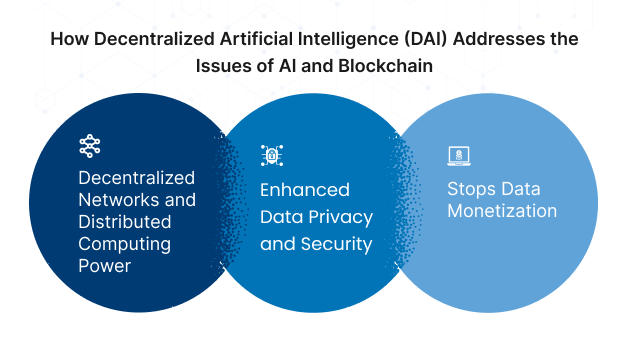Since artificial intelligence (AI) entered our daily lives, everything has changed. Its arrival marks a significant turning point in human history, with the potential to revolutionize industries, enhance human capabilities, and reshape society. We're witnessing these promises come to life daily, with new and exciting use cases emerging constantly.
However, as we venture into this new territory, it becomes evident that AI's future must be guided by decentralization. Let's explore why.
The Rise of AI and Its Future Significance
AI has evolved from a science fiction concept to a powerful force shaping our everyday experiences. Its applications are vast and growing, driven by access to extensive data, advanced computing power, and innovative algorithms.
The significance of AI in our future cannot be overstated. It promises to open new horizons in medicine, speed up scientific discoveries, and tackle global challenges. Additionally, decentralizing AI will empower individuals and communities, giving them control over their data, identities, and digital futures, paving the way for a more equitable and sustainable world.
Transitioning from Centralized AI to Decentralization
Lumerin Protocol
The Lumerin Protocol is a decentralized, peer-to-peer blockchain protocol that enables the exchange, rerouting, and redirection of data streams using smart contracts. Lumerin nodes act as "switchboards," rerouting data from one endpoint to another based on predefined smart contracts.
In a decentralized AI system, these nodes manage the data streams between AI algorithms, datasets, and users. Smart contracts on the Lumerin Protocol automate the rules and conditions under which these exchanges occur.
Morpheus
Morpheus is designed to incentivize the first peer-to-peer network of personal general-purpose AIs, known as Smart Agents, that can execute smart contracts on behalf of users. By providing open-source Smart Agents that connect to wallets, decentralized applications (Dapps), and smart contracts, Morpheus aims to make Web3 accessible to everyone. Users can manage their Web3 wallets for key management and sign recommended transactions when interacting with the Smart Agent. This system utilizes a large language model trained on Web3 data, including blockchains, wallets, Dapps, decentralized autonomous organizations (DAOs), and smart contracts. Additionally, the SmartContractRank algorithm scores and recommends the best smart contracts to users, enhancing their Web3 experience.
Decentralized AI System Architecture: The Morpheus-Lumerin Model
Lumerin and Morpheus have collaborated to develop a decentralized AI system leveraging blockchain technology and smart contracts. The Morpheus-Lumerin Model uses the Lumerin Protocol routing pattern to create a peer-to-peer, decentralized, and anonymous ecosystem for securely connecting users with AI model and compute providers.
Key aspects of the model include:
No Single Points of Failure: By distributing data streams across multiple nodes, the system ensures robustness against failures and attacks.
One Software Solution: Integrating Lumerin's data routing and Morpheus's Smart Agents into a single coherent framework.
Minimal Blockchain Transactions: Reducing the overhead and latency associated with blockchain operations to enhance efficiency.
Blockchain Agnostic: Compatibility with multiple blockchain platforms to ensure flexibility and adaptability.
Model Agnostic: Supporting various AI models, ensuring broad applicability.
Prompt and Inference Privacy: Ensuring user data and AI inferences remain private and secure.
Node Security: Implementing stringent security measures to protect nodes from malicious activities.
The Age of Decentralized AI
The fusion of AI and blockchain signifies a transformative shift toward decentralized, secure, and efficient AI systems. By treating AI computations as data streams that can be routed and managed on a decentralized network, we unlock new possibilities for innovation and democratization in the AI landscape.

As we explore this intersection further, the potential applications and benefits of decentralized AI will only grow, paving the way for a more inclusive and resilient technological future.